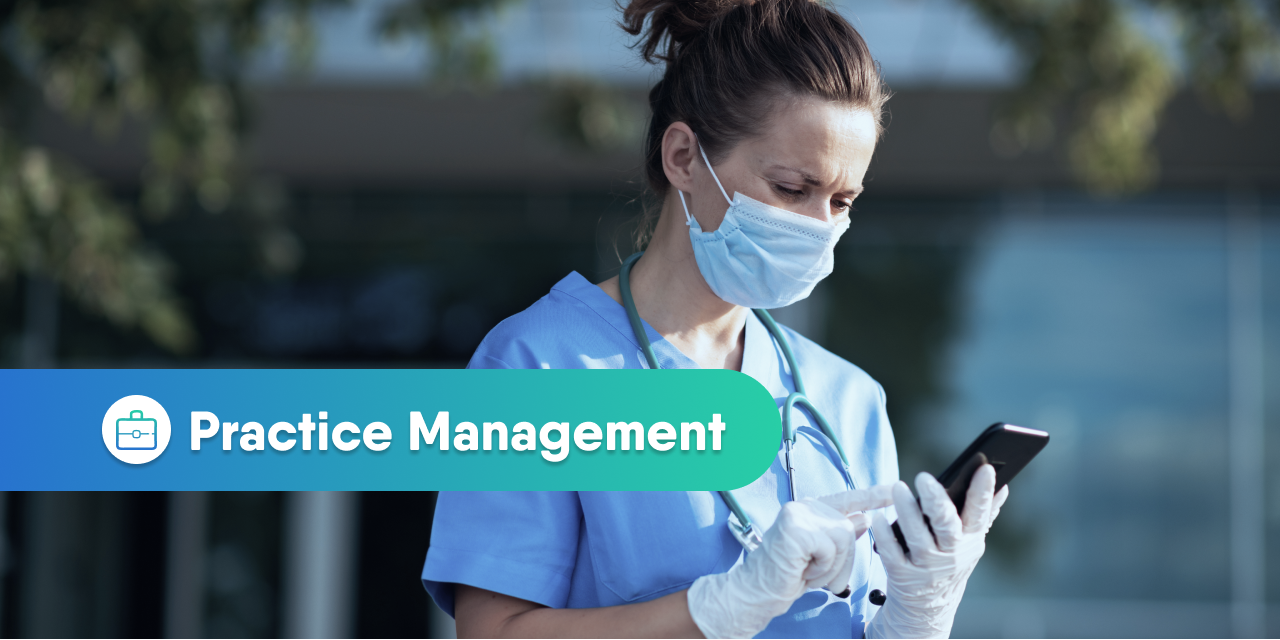5 Ways To Make the Most of Text Messaging in Your Medical Practice
Enhanced patient communication makes a difference in providing good healthcare and excellent healthcare. That is why more medical practices leverage...

Risk Adjustment Factor (RAF) scores are crucial for healthcare practices participating in value-based care models like Medicare Advantage. These scores determine the reimbursement rates based both on the demographics and disease risk scores of participating patients. The demographic scores include age, sex, residence (whether the patient lives in the community or in an institution such as a skilled nursing facility), and disability status, while the disease risk scores are based on the reported diagnoses from patient encounters and their corresponding Hierarchical Conditional Category (HCC) codes. Optimizing RAF scores involves accurately capturing and documenting patients' health conditions. Using 2-way texting can be a valuable tool in this process. Here's how your healthcare practice can optimize its RAF scores using 2-way texting:
Implementing 2-way texting for appointment reminders and scheduling can help ensure patients attend their appointments, which is essential for capturing and documenting health conditions during regular check-ups. And with 2-way texting, your front office staff can have real-time conversations with patients, allowing patients to quickly and easily reschedule their appointments.
Automating appointment reminders via text, email and/or voice makes it easy for your practice to reduce the number of missed appointments. Automation eliminates your practice or call center’s need to manually text or phone every patient to confirm upcoming appointments, creating time and cost efficiencies. To do so, the system determines those patients with upcoming appointments and sends automated messages inviting them to confirm their appointment. Up to two additional scheduled reminder messages are sent to the patient, reducing appointment no-shows — and allowing your providers to accurately assess and document the patient's medical status and thus optimize the practice's RAF scores.
Curogram's Recall feature extends this ability, by making it easy to remind patients to return for an appointment months later. Once a patient has completed his or her appointment, the system’s Recall feature can be set to automatically send a reminder later to schedule a follow-up appointment. This feature can be employed, to remind Medicare patients to schedule their visit 9 or 10 months after their annual Wellness Checkup, in order to make sure all health conditions are captured on an ongoing basis.
Use automated online intake forms to gather information about patient demographics, new symptoms, medications, or health concerns the patient may have. These are essentially text messages that contain a link directing patients to a form they can quickly fill in using their phone or computer. Tied to the type of appointment, the forms help staff prepare for the appointment and ensure that no crucial information is missed during the visit — important for ensuring accurate RAF scores.
Two-way texting can be used to remind patients to take their medications as prescribed. Improved medication adherence can lead to better management of chronic conditions, resulting in more accurate RAF scores.
Send educational materials and resources via individual texts or through mass messaging to engage patients in managing their health. This can be accomplished through text blasts to patient groups such as Medicare patients, or to those in high risk categories. A PDF containing detailed educational information or visuals can easily be added to text messages to accommodate extended content to the patient. To add a PDF to your text, upload your PDF on our HIPAA-compliant platform, and have Curogram create short links to those documents that can be included in text messages. Curogram short links are important because generic shorteners such as Bitly, Google, or Tiny URLs are often blocked by mobile phone carriers as spam.
Educated patients are more likely to understand the importance of preventive care and regular screenings, which can contribute to higher RAF scores by capturing and documenting health conditions early on.
Additionally, 2-way texting allows patients to ask questions or seek clarifications regarding their healthcare, ensuring that they are well-informed and actively involved in their own care. This increased patient engagement fosters a sense of empowerment and accountability, resulting in improved overall patient health.
Use two-way texting for remote monitoring purposes, such as tracking symptoms or vital signs for patients with chronic conditions. This enables proactive intervention and timely adjustments to treatment plans, potentially leading to better health outcomes and higher RAF scores.
Incorporating 2-way texting into healthcare practices requires careful consideration of data security and compliance with the Health Insurance Portability and Accountability Act (HIPAA). Healthcare practices must ensure that the chosen 2-way texting platform complies with HIPAA regulations to protect patient information and maintain confidentiality.
By selecting a HIPAA-compliant 2-way texting solution such as Curogram, healthcare practices can confidently communicate with patients while prioritizing data security and maintaining compliance with privacy regulations.

Enhanced patient communication makes a difference in providing good healthcare and excellent healthcare. That is why more medical practices leverage...

Operating a medical practice or health system requires compliance with various state and federal regulations, especially in today’s digitally-driven...

Technology is one of the greatest allies of efficiency in the healthcare industry. It has reduced the number of daily manual processes, from patient...